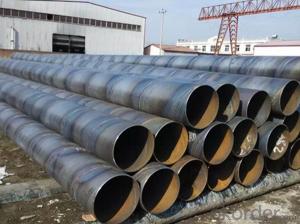Q235B spiral pipe can be processed inside and outside anti-corrosion
- Loading Port:
- Tianjin
- Payment Terms:
- TT OR LC
- Min Order Qty:
- 1 m.t.
- Supply Capability:
- 1000 m.t./month
OKorder Service Pledge
OKorder Financial Service
You Might Also Like
Item specifice
Our main products are: seamless steel tube (hot rolling, cold drawing);Spiral steel tube;Straight seam steel tube;Heat expanding steel tube;Large diameter thick wall steel tube;Alloy steel tube;Anti-corrosion and heat preservation steel pipe.Scope of seamless steel tube: diameter 57mm-910mm wall thickness 2.0mm-26mm;Double-sided submerged arc welding spiral steel tube: diameter: 219mm-3600mm; wall thickness: 6.0mm-30mm;Straight seam resistance welded steel tube (ERW) : diameter 21.3mm-457.2mm wall thickness 1.8mm-14.27mm and straight seam double-sided submerged arc welding pipe: diameter 310mm-3200mm wall thickness 6mm-60mm;Thermal expansion seamless steel tube: diameter 245mm-920mm wall thickness 6.0mm-34mm;Large diameter thick wall steel tube: diameter 351mm-3600mm wall thickness 26mm-80mm. Seamless steel tube execution standard: GB/T8162 8163 3087 5310 6479 9948 5312.Helical steel tube executive standard: GB/T9711.1 9711.2 SY/T5037 5040 APTSPEC 5L.Straight seam steel pipe standards: GB/T3091971113793APISpec5L.Thermal expansion steel pipe executive standard: GB/T8162 8163 3091.Large diameter thick wall steel pipe executive standard: GB/T3091 3092 14980 13793.Alloy steel pipe standards: GB3087, 5310, 6479, 9948 SY/T6194API5CTAPI5LAPI5BASTM53M?ASTMA106 ASTMA213/213 m DIN17175.
According to customer requirements, the company can undertake steel tube of the single and double fusion bonded epoxy (FBE), double polyethylene powder (2 PE pipe) and three layers of polyethylene (3 PE steel pipe), double polypropylene (pp) and polypropylene (pp), three layer of epoxy coal tar anti-corrosion coating pipeline anticorrosion engineering and IPN8710 polymer anticorrosive coatings, cement mortar pipe wall corrosion pipe internal coating such as a variety of anti-corrosion structure of directly buried steel pipeline anticorrosion engineering and rock wool insulation sets of steel, black/yellow leather jacket polyurethane foam insulation pipe engineering, execution DIN30670?30671, SY/T4013 0315 standard, is widely used in oil, natural gas, gas, water and other long transmission pipelines and petrochemical enterprises urban central heating pipe network, gas pipe network and other projects, products with high strength, high pressure, easy to install, low cost, long service life and many other advantages, by the user's praise.
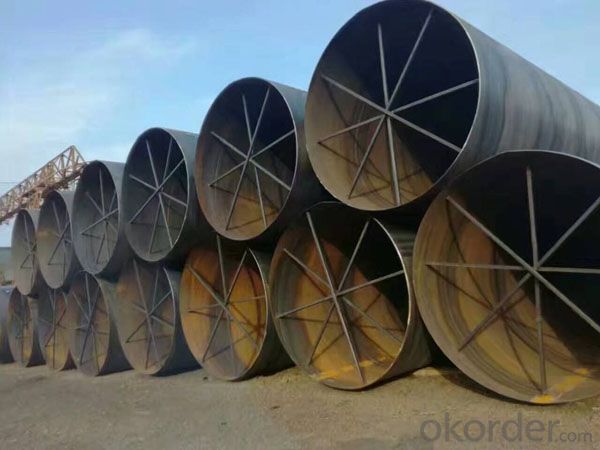
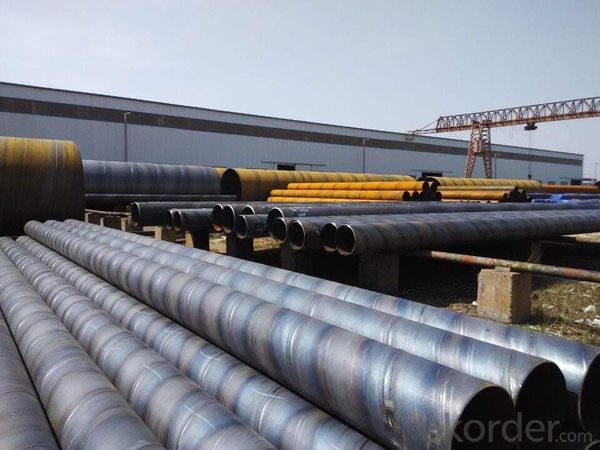
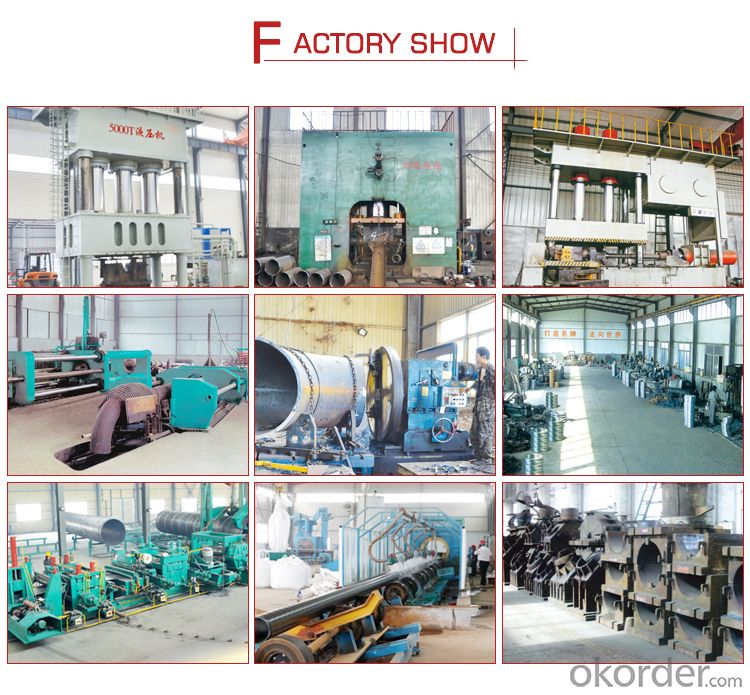
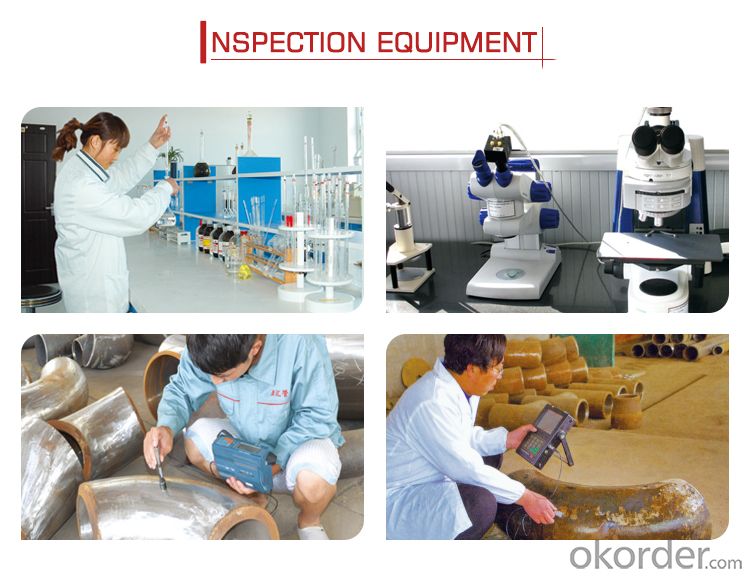
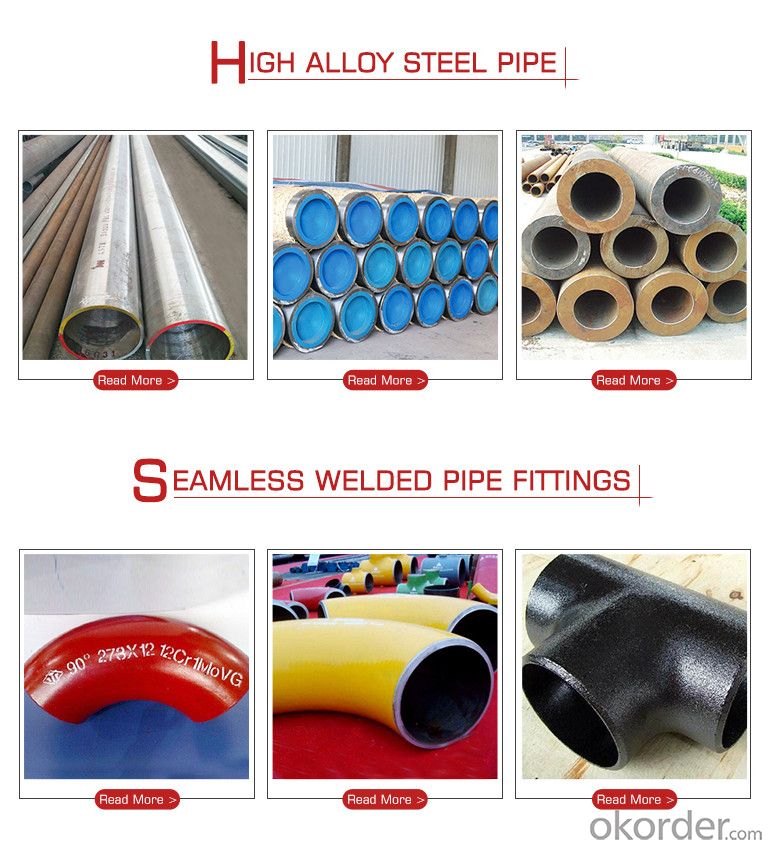
- Q:Can steel pipes be used for petrochemical plants?
- Yes, steel pipes can be used for petrochemical plants. Steel pipes are commonly used in petrochemical plants due to their high strength, durability, and resistance to corrosion. They can handle high-pressure and high-temperature applications, making them suitable for transporting various chemicals and gases in petrochemical processes.
- Q:What is the maximum temperature that steel pipes can withstand?
- The maximum temperature that steel pipes can withstand depends on the grade and type of steel used. Generally, carbon steel pipes can withstand temperatures up to 1000°C (1832°F), while stainless steel pipes can handle temperatures up to 1200°C (2192°F). However, it is essential to consult the specific specifications and guidelines provided by the manufacturer for accurate temperature limits.
- Q:Can steel pipes be used for steam distribution?
- Yes, steel pipes can be used for steam distribution. Steel pipes are commonly used for conveying steam due to their high heat resistance and durability. They can withstand the high temperatures and pressures associated with steam distribution, making them a suitable choice for this application.
- Q:How do you calculate the bending moment of a steel pipe?
- To determine the bending moment of a steel pipe, one must take into account both the applied load and the structural characteristics of the pipe. The bending moment quantifies the internal forces within the pipe caused by the applied load. To calculate the bending moment, one can use the following equation: Bending Moment = Load x Distance In this equation, the load represents the external force acting on the pipe, and the distance refers to the separation between the point of load application and the point where the bending moment is being evaluated. For an accurate bending moment calculation, it is necessary to consider the properties of the steel pipe. These properties encompass the pipe's cross-sectional area, second moment of area (also known as the moment of inertia), and the modulus of elasticity. The second moment of area demonstrates the pipe's resistance to bending and can be computed based on the dimensions of the pipe's cross-section. The modulus of elasticity signifies the pipe's stiffness and can be obtained from material properties data. Once the load, distance, cross-sectional area, moment of inertia, and modulus of elasticity are determined, they can be inputted into the bending moment equation to ascertain the bending moment for the steel pipe. It is important to recognize that the calculation of bending moment assumes linear elastic behavior, which implies that the pipe does not surpass its elastic limit nor undergo plastic deformation. If the pipe is exposed to loads surpassing its capacity, the bending moment calculation may not accurately depict the actual behavior of the pipe. In such instances, it is recommended to consult a structural engineer or employ more sophisticated analysis methods to precisely evaluate the bending moment.
- Q:How are steel pipes protected from damage during transportation?
- Steel pipes are typically protected from damage during transportation through various methods such as wrapping them in protective coatings, using foam inserts, securing them with straps or braces, and placing them in sturdy packaging materials to prevent any movement or impact. Additionally, pipes may also be stored and transported in specialized containers or racks specifically designed for their safe transportation.
- Q:Can steel pipes be used for the construction of railway tracks?
- No, steel pipes cannot be used for the construction of railway tracks. Railway tracks are typically made of steel rails that are specifically designed and manufactured for this purpose. Steel pipes lack the necessary shape, strength, and dimensions required for supporting heavy loads and facilitating the smooth movement of trains.
- Q:How do steel pipes connect to other components?
- Steel pipes can be connected to other components using various methods, including welding, threading, flanges, and couplings. These connections ensure a secure and leak-proof joint between the steel pipe and other components, allowing for efficient fluid or gas transfer in various industries.
- Q:How big is the seamless steel tube of DN50?
- Domestic steel pipe diameter is generally divided into A series and B series, DN50 pipe diameter of 60mm and 57mm respectively, the wall thickness should be based on your design pressure, temperature, pipe material to calculate.
- Q:Can steel pipes be used for chimney flues?
- Yes, steel pipes can be used for chimney flues. Steel pipes are often used as a viable option for chimney flues due to their durability, heat resistance, and ability to withstand high temperatures. However, it is important to ensure that the steel pipes used are specifically designed and approved for chimney flue applications to meet safety standards and regulations.
- Q:How do steel pipes handle chemical substances?
- Steel pipes are highly resistant to chemical substances due to their high strength and corrosion-resistant properties. They can safely handle a wide range of chemical substances without undergoing any significant degradation or damage.
1. Manufacturer Overview |
|
|---|---|
| Location | |
| Year Established | |
| Annual Output Value | |
| Main Markets | |
| Company Certifications | |
2. Manufacturer Certificates |
|
|---|---|
| a) Certification Name | |
| Range | |
| Reference | |
| Validity Period | |
3. Manufacturer Capability |
|
|---|---|
| a)Trade Capacity | |
| Nearest Port | |
| Export Percentage | |
| No.of Employees in Trade Department | |
| Language Spoken: | |
| b)Factory Information | |
| Factory Size: | |
| No. of Production Lines | |
| Contract Manufacturing | |
| Product Price Range | |
Send your message to us
Q235B spiral pipe can be processed inside and outside anti-corrosion
- Loading Port:
- Tianjin
- Payment Terms:
- TT OR LC
- Min Order Qty:
- 1 m.t.
- Supply Capability:
- 1000 m.t./month
OKorder Service Pledge
OKorder Financial Service
Similar products
New products
Hot products
Related keywords
